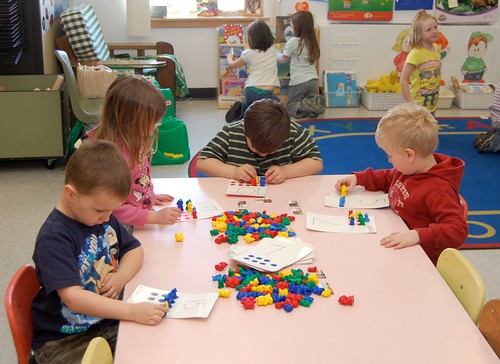Three mistakes parents can make when it comes to early childhood education
From the moment your baby is first placed in your arms, you love them with all your heart; as they grow, you support them as they learn to sit, crawl, and walk, and talk and much more. Your list is ever full of ways to nurture, support, and teach them to become happy, successful adults.
But sometimes your efforts can produce unexpected results a few years down the line and you can be left wondering what, if anything, might have gone awry in your parenting efforts. If this sounds familiar, take heart: every parent I have met as an assistant working in this type of child care center in Sydney has felt this at some point, only to redouble their efforts to be the perfect parent immediately after. Interestingly, they tried to be this mythical person in three distinct ways, convinced that they were on the right path.
In fact, the three groups were each making a different mistake; the pattern was clear. I did a little research to see if it’d ever been documented. Luckily, it had, by psychologist-researcher Dr. John Gottman, who has spent over forty years studying parent-child interactions. in his book,Raising an Emotionally Intelligent Child. Gottman describes one healthy (which we won’t be talking about), and three dysfunctional parenting styles:
The Dismissing Parent
This type of parent feels strongly that they have to “toughen up” their offspring for life’s challenges; with them, life’s rules and discipline all the way. They treat children’s feelings as trivial, barely tolerate positive ones and do their best to make the negative ones disappear quickly, because they perceive them as insubordination to their all-important rules. They downplay events that lead to their children’s emotions and do not problem-solve with the children, believing that the passage of time will resolve the issue.
This parent’s children learn that their feelings are inappropriate, and not valid and that there is something inherently wrong with them because of the way they feel.
The Disapproving Parent
While the dismissing parent does accept their child and only sees their emotions as irrational and irrelevant, the disapproving parent goes a step further: they deny the legitimacy of all emotions, and ban their expression altogether. This parent goes out of their way to enforce conformity to good standards of behavior.
While the dismissing parent’s children grow up to be somewhat neurotic, the disapproving one’s learn to appear devoid of all emotion. The flip side? A range of health problems, from diabetes to heartburn to high blood pressure.
The Laissez-Faire Parent
This parent hails from a different emotional galaxy from the first two: they freely accept, encourage, and nurture all emotional expression from their child. Empathy is their middle name and there is no feeling great or small coming from their children they’re not ready to feel too at the drop of a hat. But why is this wrong? They offer no guidance on behavior, or set limits and so fail to teach their kid how to solve problems.
Because this parent’s kids are so bound up within themselves, they have trouble concentrating, making friendships, and getting along with other children.
 |
| Image source: https://flic.kr/p/9A27ZE |
So what does the fourth, rare-as-a-unicorn parent do right to nurture their children’s healthy emotional development? The answer is as surprising as it is simple: they strike a delicate, ever-shifting balance between empathy and discipline. Sounds easy, but it’s actually one of the hardest feats of psychological achievement; one which starts with self-parenting.



Comments
Post a Comment